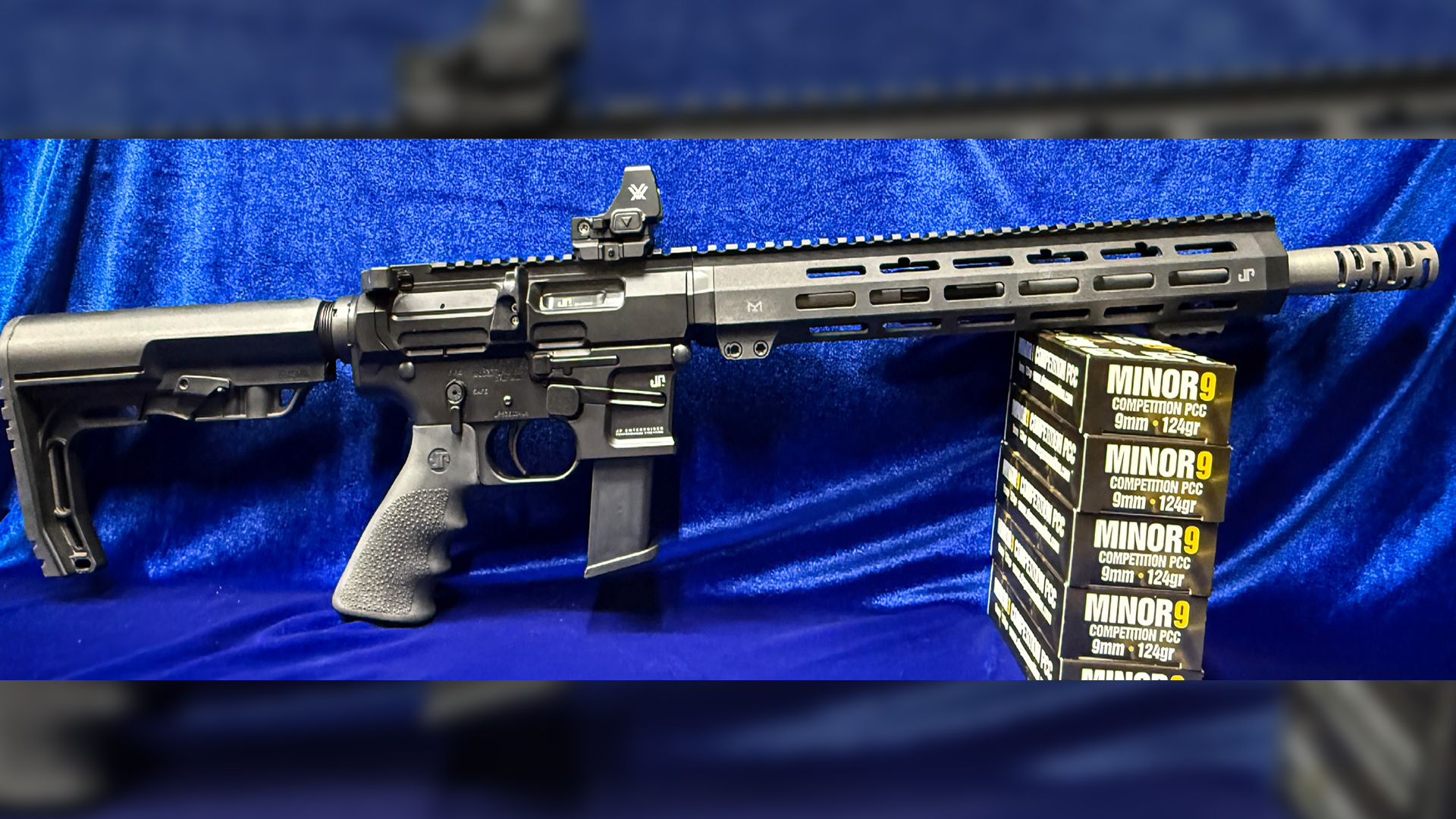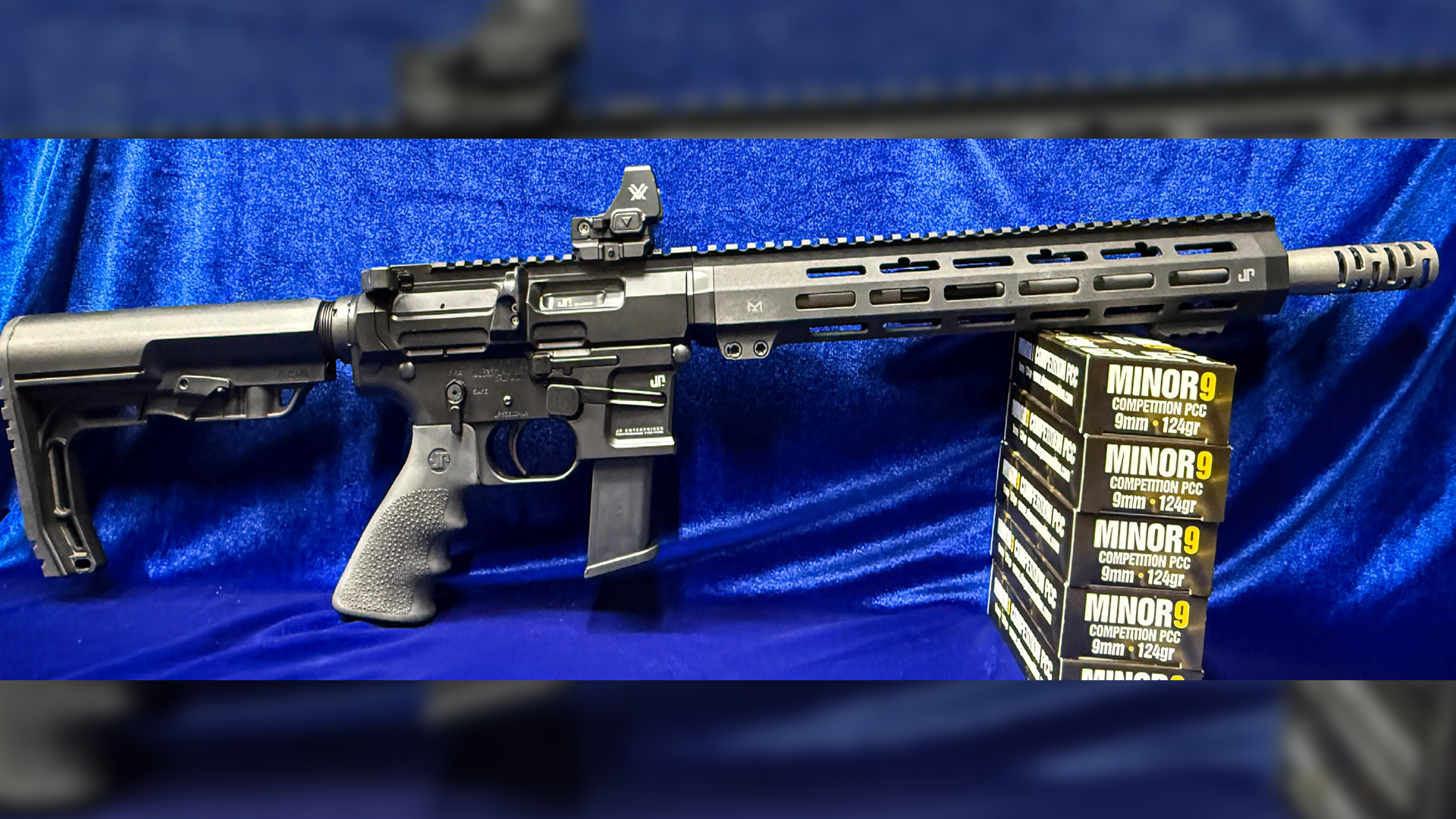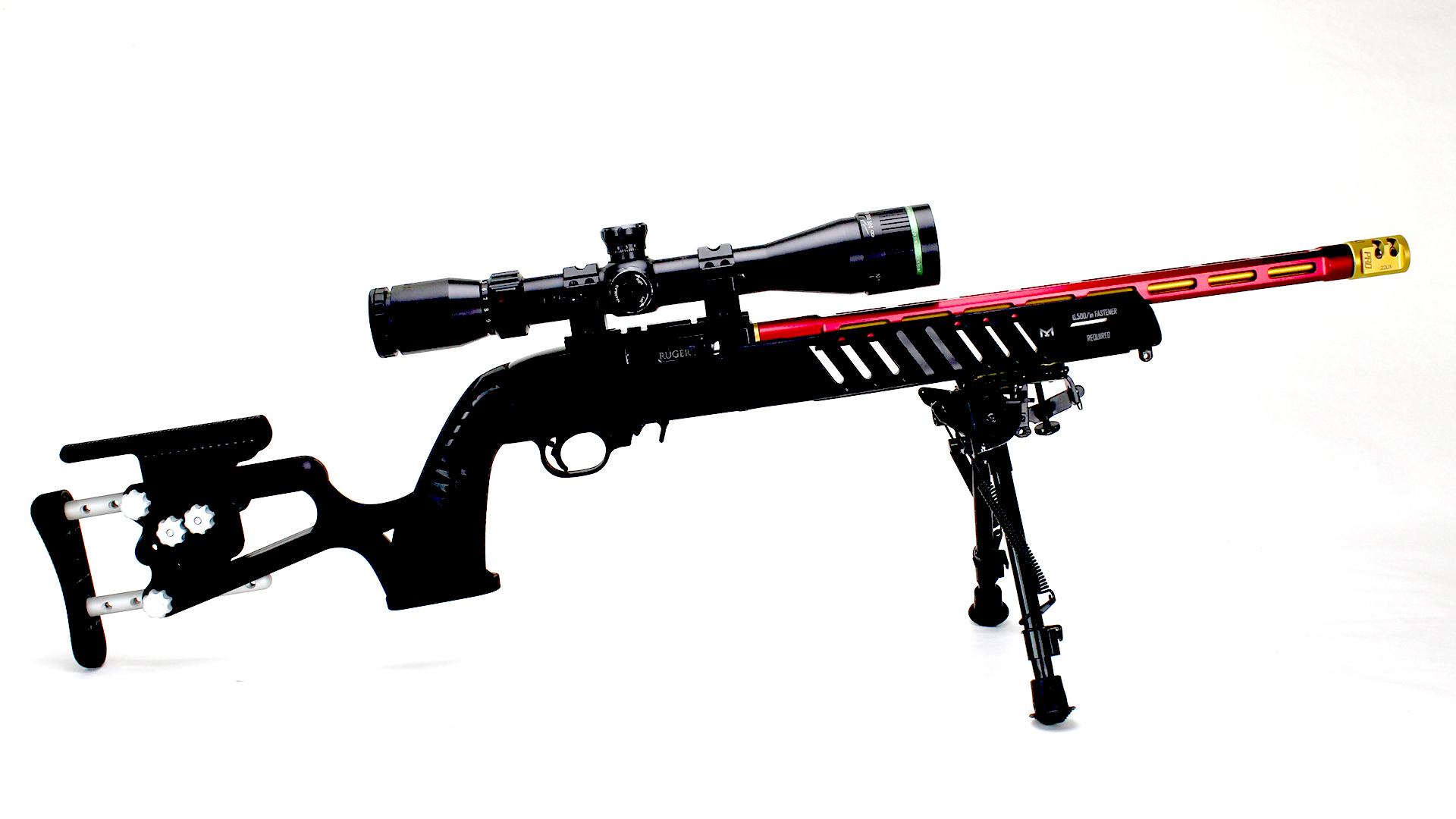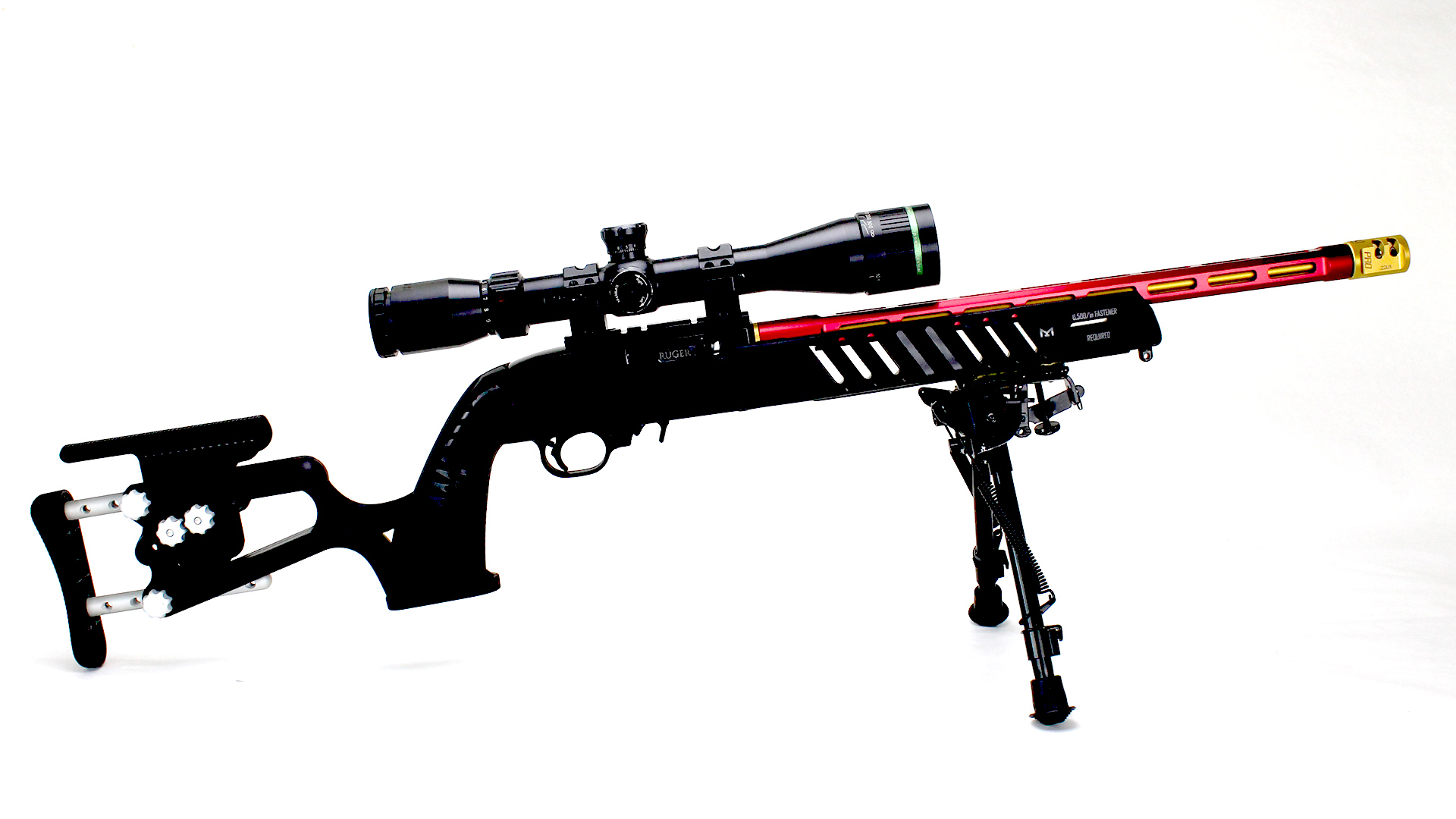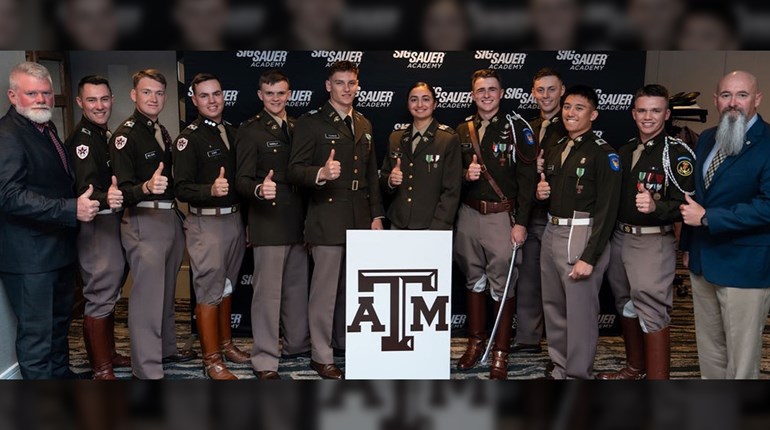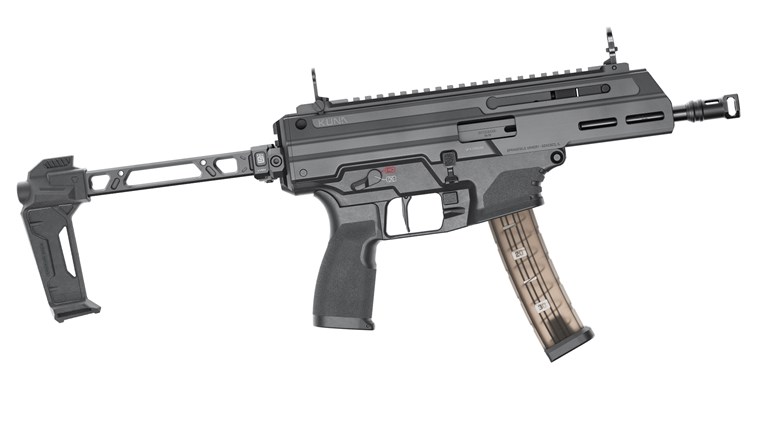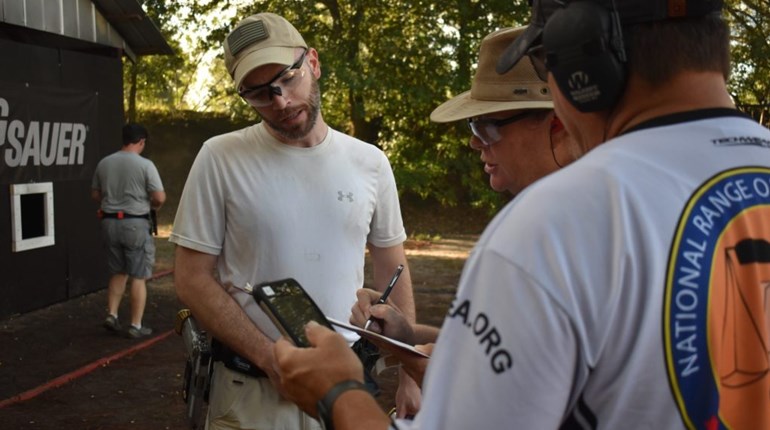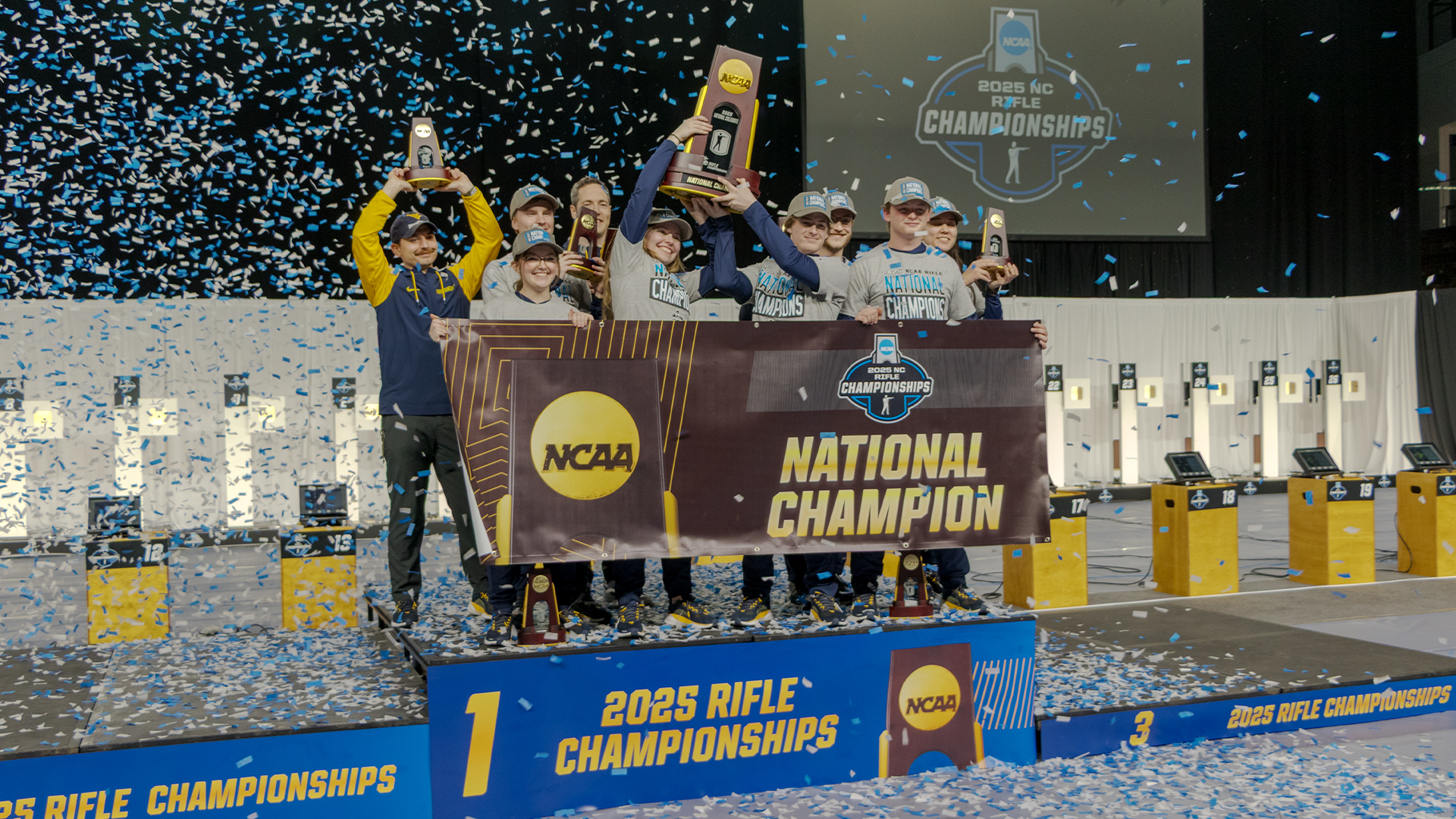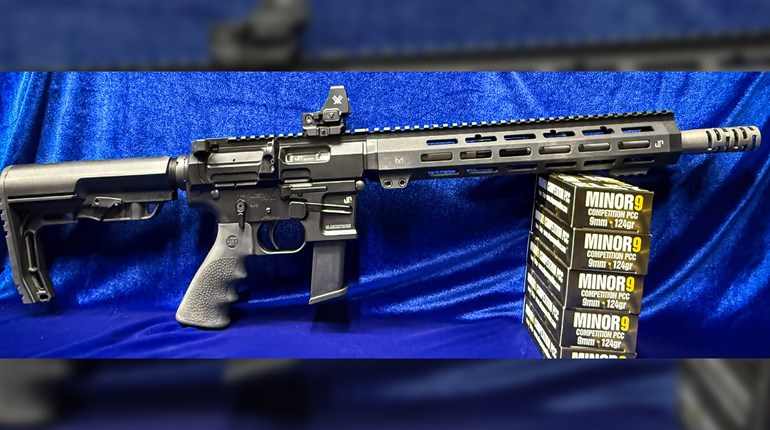
For 19-year-old college student Christian Sailer, 2019 has been one great year. Not only has he managed to win seven out of eight of the USPSA Area Championships, but he was also recently crowned the 2019 HiCap Open Division winner and High Overall. While prepping for the USPSA Area 2 Championship match, Christian stook the time to share his current and future plans.
What age did you first shoot a gun and who took you to the range first?
I was 13 when my father took my brother and I to a gun safety course and I was immediately hooked. I went every time I could, and my passion for shooting began to grow. That was in 2013.
Where do you call home?
Bellevue, Wash., is where I grew up and my parents still live. Last year I moved to the University of Washington in Seattle where I’m currently a sophomore.
So you’re a college student then? What are your college plans?
Yes, I’m a full-time student and living in a fraternity house. I was a direct admit out of high school into the Foster School of Business. I’m unsure what sector of Business I’d like to pursue but I’ll soon figure it out and probably stay at Washington for an MBA.
Why did you start shooting USPSA?
That was in 2013. By 2014 I was competing regularly in Production. In 2016 I placed third in Production at Area 1. By the end of that year, I shot my first Open gun. In 2017 I shot my first big match in Open and took seventh place at Area 1. My breakout year was 2018, when I won two state matches, both Area 3 and Area 4, and took third at Nationals. In 2019 so far, I’ve shot seven of the eight Area matches, two state matches, and of course the Hi-Cap Nationals. Area 2 is in November.
What other practical shooting sports do you shoot?
My first shooting match was an IDPA match, but I haven’t shot any of it in the past years. I have shot some Steel Challenge—it’s a lot more mental and experience-based than USPSA. I don’t have the years of experience shooting steel or the draw speed that some of the top players in that sport have to win, but I do enjoy it.
What is it you like most about shooting Open Division?
I like to go fast (laughs)! I have young eyes—I like shooting as fast as the dot allows you. I want to also shoot both Limited and Single Stack. In fact, I currently have a Limited gun being built by Infinity for me.
Tell us about your practice routine? How often? How many rounds do you shoot?
I essentially have two seasons—school and summer. My school schedule dictates everything. I can’t have a gun at the fraternity house, so I can’t even dry fire there. During the school year, I go home once a week every Saturday and practice indoors—I usually shoot no more than 300 rounds. During the summer, that increases to twice a week—in addition to what I normally do on Saturday, on Wednesdays I shoot about 300 rounds outside. I would like to shoot three to four times a week, but right now I just can’t fit it in around school. I normally shoot about 15- to 20,000 rounds per year. When I practice, I shoot a healthy mix of both stages and drills. I also do a ton of dry fire when I’m home. During my senior year of high school and over that summer, I did a lot of training and progressed the most I ever have. I finally had the time.
What are you doing off the range to train and prepare? Do you have a workout regimen?
I was really into fitness my junior year of high school. I lifted and ran almost every day. I was 175 pounds and 7.3 percent body fat. Due to elbow surgery before the baseball season, I haven’t fully gotten back into the swing of things. I played baseball throughout high school—pitcher and outfield. I haven’t been working out as much with school but I get my work in when I can. I do like to run—I also ran cross country in high school. I have some goals plotted out for the year and will focus on my legs and core, increasing my overall explosiveness. Right now I work out two to three times a week.
What was your big “ah-ha” moment in your shooting? When did you see the most dramatic results?
That was during my 2018 season—that summer after high school. I could always move and shoot pretty well, but the fundamentals were not solid. I took a step back and focused on the elements needed to make a good shot. I also spent a lot more time analyzing my videos and match performances. One thing I really focused on last year was trigger control—that helped a ton.
What is the biggest tip you can share with our readers?
Two parts—work on trigger control, and work on throttle control, which is better defined as trigger control. Different targets at different distances require different trigger pulls. Part of it is learning what you can get away with. Scaled focus and a scaled trigger pull are important. I also recommend analyzing your match videos and addressing your weaknesses.
Run down your equipment and ammunition—what are you shooting? What size dot do you use?
I shoot an Infinity IMM Open gun (Infinity Modified Masterpiece). In terms of a red dot, I shoot a Leupold DeltaPoint Pro 2.5 MOA. I shoot all Everglades bullets. In my Open gun, I used their 124 JHP. I use a Double Alpha X Holster and Mag pouches. For reloading, I use a Dillon Precision 1050.
Was all of the hard work and effort worth it?
Definitely. It really just depends on what you want out of it. You get out what you put in. I’m after the fun more than the winning. I’ve spent a lot of time with my parents traveling and seeing new places in the country—spending that time with them has been a real highlight. They’ve been so supportive.
What’s next for you? Any goals for the 2020 season?
I didn’t think I would qualify for the World Shoot team, but with the win at Nationals this year and after running the math, it looks like I’ll be on the Men’s Open team headed to Thailand in 2020. My next goal is to win individually and as a team at the World Shoot. I want to shoot against the best shooters I can leading up to that event. I’m also going to shoot more IPSC this year in preparation for the World Shoot and travel internationally. Based on points so far, I have a pretty good idea of who will be on the team, and I don’t think anyone will be able to beat us (laughs).
In my completely biased opinion, I agree 100 percent. Thank you so much for taking the time to speak with us. Best of luck in school this year and at Area 2 next month.
Thank you!
Article from the November/December 2019 issue of USPSA’s FrontSight magazine.
What age did you first shoot a gun and who took you to the range first?
I was 13 when my father took my brother and I to a gun safety course and I was immediately hooked. I went every time I could, and my passion for shooting began to grow. That was in 2013.
Where do you call home?
Bellevue, Wash., is where I grew up and my parents still live. Last year I moved to the University of Washington in Seattle where I’m currently a sophomore.
So you’re a college student then? What are your college plans?
Yes, I’m a full-time student and living in a fraternity house. I was a direct admit out of high school into the Foster School of Business. I’m unsure what sector of Business I’d like to pursue but I’ll soon figure it out and probably stay at Washington for an MBA.
Why did you start shooting USPSA?
That was in 2013. By 2014 I was competing regularly in Production. In 2016 I placed third in Production at Area 1. By the end of that year, I shot my first Open gun. In 2017 I shot my first big match in Open and took seventh place at Area 1. My breakout year was 2018, when I won two state matches, both Area 3 and Area 4, and took third at Nationals. In 2019 so far, I’ve shot seven of the eight Area matches, two state matches, and of course the Hi-Cap Nationals. Area 2 is in November.
What other practical shooting sports do you shoot?
My first shooting match was an IDPA match, but I haven’t shot any of it in the past years. I have shot some Steel Challenge—it’s a lot more mental and experience-based than USPSA. I don’t have the years of experience shooting steel or the draw speed that some of the top players in that sport have to win, but I do enjoy it.
What is it you like most about shooting Open Division?
I like to go fast (laughs)! I have young eyes—I like shooting as fast as the dot allows you. I want to also shoot both Limited and Single Stack. In fact, I currently have a Limited gun being built by Infinity for me.
Tell us about your practice routine? How often? How many rounds do you shoot?
I essentially have two seasons—school and summer. My school schedule dictates everything. I can’t have a gun at the fraternity house, so I can’t even dry fire there. During the school year, I go home once a week every Saturday and practice indoors—I usually shoot no more than 300 rounds. During the summer, that increases to twice a week—in addition to what I normally do on Saturday, on Wednesdays I shoot about 300 rounds outside. I would like to shoot three to four times a week, but right now I just can’t fit it in around school. I normally shoot about 15- to 20,000 rounds per year. When I practice, I shoot a healthy mix of both stages and drills. I also do a ton of dry fire when I’m home. During my senior year of high school and over that summer, I did a lot of training and progressed the most I ever have. I finally had the time.
What are you doing off the range to train and prepare? Do you have a workout regimen?
I was really into fitness my junior year of high school. I lifted and ran almost every day. I was 175 pounds and 7.3 percent body fat. Due to elbow surgery before the baseball season, I haven’t fully gotten back into the swing of things. I played baseball throughout high school—pitcher and outfield. I haven’t been working out as much with school but I get my work in when I can. I do like to run—I also ran cross country in high school. I have some goals plotted out for the year and will focus on my legs and core, increasing my overall explosiveness. Right now I work out two to three times a week.
What was your big “ah-ha” moment in your shooting? When did you see the most dramatic results?
That was during my 2018 season—that summer after high school. I could always move and shoot pretty well, but the fundamentals were not solid. I took a step back and focused on the elements needed to make a good shot. I also spent a lot more time analyzing my videos and match performances. One thing I really focused on last year was trigger control—that helped a ton.
What is the biggest tip you can share with our readers?
Two parts—work on trigger control, and work on throttle control, which is better defined as trigger control. Different targets at different distances require different trigger pulls. Part of it is learning what you can get away with. Scaled focus and a scaled trigger pull are important. I also recommend analyzing your match videos and addressing your weaknesses.
Run down your equipment and ammunition—what are you shooting? What size dot do you use?
I shoot an Infinity IMM Open gun (Infinity Modified Masterpiece). In terms of a red dot, I shoot a Leupold DeltaPoint Pro 2.5 MOA. I shoot all Everglades bullets. In my Open gun, I used their 124 JHP. I use a Double Alpha X Holster and Mag pouches. For reloading, I use a Dillon Precision 1050.
Was all of the hard work and effort worth it?
Definitely. It really just depends on what you want out of it. You get out what you put in. I’m after the fun more than the winning. I’ve spent a lot of time with my parents traveling and seeing new places in the country—spending that time with them has been a real highlight. They’ve been so supportive.
What’s next for you? Any goals for the 2020 season?
I didn’t think I would qualify for the World Shoot team, but with the win at Nationals this year and after running the math, it looks like I’ll be on the Men’s Open team headed to Thailand in 2020. My next goal is to win individually and as a team at the World Shoot. I want to shoot against the best shooters I can leading up to that event. I’m also going to shoot more IPSC this year in preparation for the World Shoot and travel internationally. Based on points so far, I have a pretty good idea of who will be on the team, and I don’t think anyone will be able to beat us (laughs).
In my completely biased opinion, I agree 100 percent. Thank you so much for taking the time to speak with us. Best of luck in school this year and at Area 2 next month.
Thank you!
Article from the November/December 2019 issue of USPSA’s FrontSight magazine.







